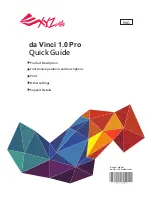
DA50S/DA55S/DA70S/DA75S AddressRight™ Printers Service Manual
3-5
Theory • 3
The timing diagram (Figure 3-3) depicts the sequence of events during a
print cycle. The media to be addressed or printed upon is loaded into the
input bin. Whenever a valid address is received from the computer while the
printer is in the “on line” mode, the micro processor signals the transport mo-
tor to rotate.
The transport motor drives the main feed, intermediate and exit rollers via the
two-stage serpentine timing belts. As the main feed roller turns, it drives the
bottom piece between the “H” block separator tabs and the main feed roller.
The separator tabs retard all but the bottom piece in the stack.
The transport motor timing belt connects the upper and lower transport and
the exit rollers via the drive belt on the front plate assembly. The upper trans-
port rollers are connected to the main feed roller by way of the timing belt on
the center plate assembly.
The main feed roller assembly (with integrated slip clutches) consists of six
rollers mounted on a shaft. Each roller has a replaceable “tire” that provides
the friction surface to drive the material through the printer. The roller assem-
bly is driven by the main drive motor through two stages of serpentine timing
belts. The separators are designed to frictionally restrain all but the bottom
piece of media (the DA70S/DA75S has a second set of transport rollers
which help securely transport the printed media).
The feed roller moves the piece of media between the upper idler and the
upper transport rollers. The speed differential between upper / lower trans-
port rollers and the main feed roller creates a gap between the moving piec-
es of media.
The lower transport rollers move the leading edge of the media into the path
of the sensor assembly.
The main feed rollers drive the leading edge of the piece into the path of the
through-beam sensor assembly. The sensor pair is mounted above the paper
guide and below the feed deck just above the shaft of the intermediate roller.
The transiting piece interrupts the infrared path between the lower (receiver)
and upper sensor (emitter/LED). The processor board sensor voltage chang-
es, alerting the microprocessor to the location of the piece's lead edge.
The transport motor (with high-resolution encoder) continues to turn the low-
er transport rollers, moving the media ahead. At a predetermined measure-
ment (bottom margin), the micro processor signals the print head shuttle DC
motor to move the print head holder assembly from the park position onto the
media surface. The encoder strip, passing through the encoder reader on the
print head drive board, keeps track of the movement of the print head. The
shuttle motor drives the print head assembly via a timing belt.
As the print head sweeps across the media, the processor signals the trans-
port main drive DC motor to stop the feeding cycle.
3.3 Operating
Sequence
















































